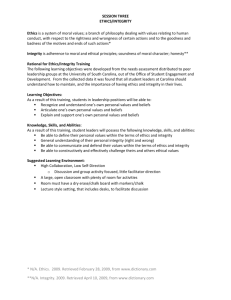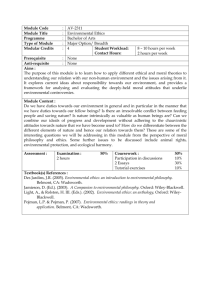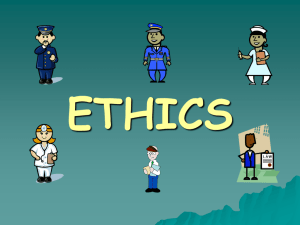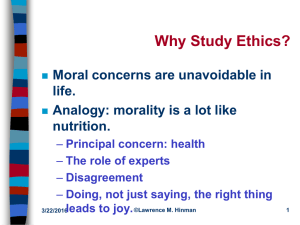clouds - Brett Oppegaard
advertisement
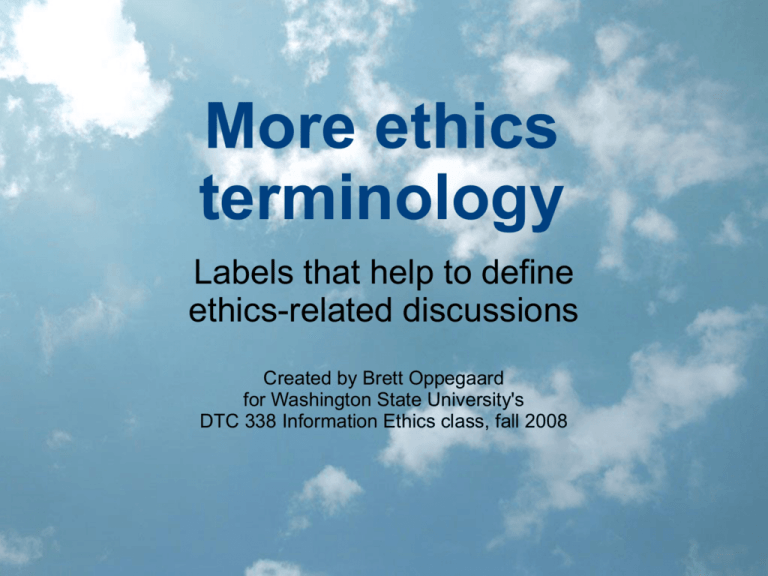
More ethics terminology Labels that help to define ethics-related discussions Created by Brett Oppegaard for Washington State University's DTC 338 Information Ethics class, fall 2008 Terms we will want to know Source: Lawrence M. Hinman, Univ. of San Diego, “Ethics: A Pluralistic Approach to Moral Theory” Absolutism -- “The belief that there is one and only one truth; those who espouse absolutism usually also believe that they know what this absolute truth is.” Descriptive ethical relativism -- “Different people have different moral beliefs, but it takes no stand on whether those beliefs are valid or not.” Normative ethical relativism -- “Each culture’s (or group’s) beliefs are right within that culture, and that it is impossible to validly judge another culture’s values from the outside.” Subjectivism -- “An extreme version of relativism, which maintains that each person’s beliefs are relative to that person alone and cannot be judged from the outside by any other person.” Utilitarianism -- “What is morally right is whatever produces the greatest overall amount of pleasure (hedonistic utilitarianism) or happiness (eudaimonistic utilitarianism). Terms we will want to know Source: Lawrence M. Hinman, Univ. of San Diego, “Ethics: A Pluralistic Approach to Moral Theory” Divine Command Theory -- “Any position in ethics which claims that the rightness or wrongness of actions depends on whether they correspond to God’s commands or not.” Emotivism -- “A philosophical theory which holds that moral judgements are simply expressions of positive or negative feelings.” Psychologism egoism -- “The doctrine that all human motivation is ultimately selfish or egoistic.” Universal ethical egoism -- “States that each person ought to act in his or her own self-interest.” Moral Isolationism -- “The view that we ought not to be morally concerned with, or involved with, people outside of our own immediate group.” Terms we will want to know Source: Lawrence M. Hinman, Univ. of San Diego, “Ethics: A Pluralistic Approach to Moral Theory” Consequentialism -- “Any position in ethics which claims that the rightness or wrongness of actions depends on their consequences.” Moral Luck -- “The phenomenon that the moral goodness or badness of some of our actions depends simply on chance.” Particularity -- “Refers to specific attachments (friendships, loyalties, etc.) and desires (fundamental projects, personal hopes in life) that are usually seen as morally irrelevant to the rational moral self.” Deontology -- “Any position in ethics which claims that the rightness or wrongness of actions depends on whether they correspond to our duty or not. The word derives from the Greek word for duty, deon.”
